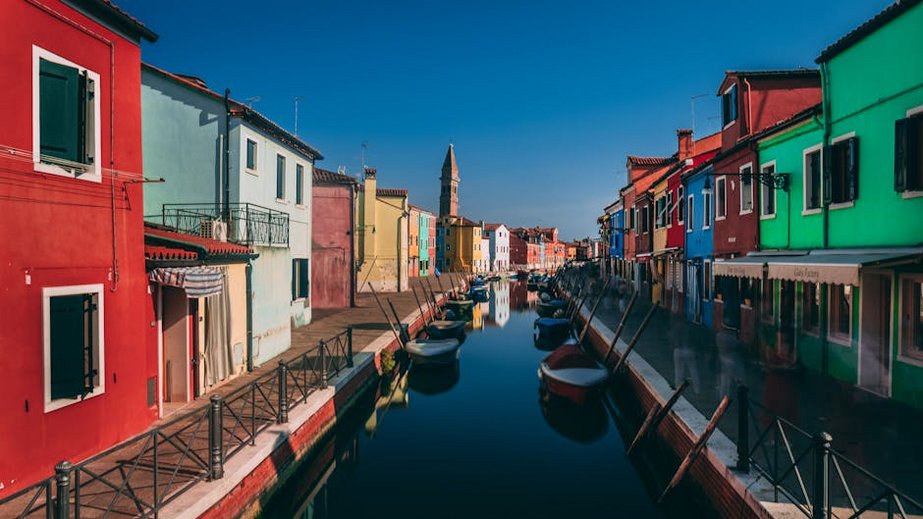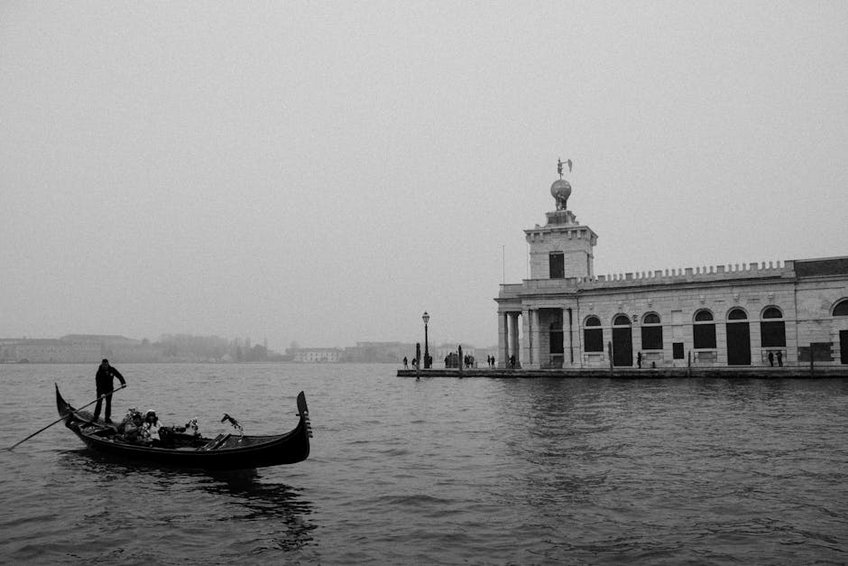Gondola Workshop Holiday in Italy
Imagine the gentle lapping of Venetian canal waters against ancient stone walls as you step into a centuries-old squero, the traditional boatyard where master artisans craft Italy’s most iconic symbol: the gondola. A gondola workshop holiday in Italy offers more than just sightseeing—it’s an immersive cultural experience where you learn directly from the craftspeople who maintain this dying art form. You’ll get hands-on with wood, tools, and techniques passed down through generations while discovering the hidden Venice that tourists rarely see. This unique vacation combines creative learning with deep cultural immersion, giving you skills and memories that extend far beyond typical travel experiences. Whether you’re a woodworking enthusiast, history lover, or simply seeking an authentic Italian adventure, participating in a gondola workshop provides unparalleled access to Venetian traditions that few outsiders ever witness.
Gondola Workshop Holiday in Italy – Essential Information
A gondola workshop holiday represents one of Italy’s most specialized travel experiences, blending hands-on craftsmanship with cultural immersion in Venice’s unique aquatic environment. These workshops typically range from 3-7 days and are led by master gondola builders (squeraroli) who have spent decades perfecting their craft. You’ll work in authentic squeri, the traditional boatyards tucked away along smaller canals where the public rarely ventures. The experience goes beyond simple observation—participants actively contribute to building or restoring actual gondolas using traditional tools and techniques. Most workshops include theoretical lessons about gondola history, design principles, and the physics behind their distinctive asymmetric shape that allows single-oar propulsion. This isn’t a tourist demonstration but a genuine cultural preservation activity where your participation helps sustain a tradition dating back to the 11th century.
What Makes This Experience Unique
- Direct learning from fourth-generation gondola builders who share family secrets and techniques
- Working with traditional materials like mahogany, cherry, walnut, and oak using hand tools rather than power equipment
- Understanding the symbolic elements: the iron prow representing Venice’s districts, the curved stern for balance, and the precise 11-meter length
- Limited group sizes (typically 4-6 participants) ensuring personalized attention and authentic experience
- Budget option ($1,200-1,800): 3-day introductory workshop focusing on finishing and decoration techniques, staying in affordable guesthouses outside central Venice
- Mid-range option ($2,500-3,500): 5-day comprehensive workshop including structural work, moderate hotel accommodation, and some meals with the artisan families
- Luxury option ($4,000-6,000+): 7-day masterclass with renowned builders, luxury accommodation, private water taxi transfers, and exclusive access to historical squeri
- Venezia Unica Official Tourism Portal
- Save Venice Foundation – Venetian Craftsmanship
Who Should Consider This Experience
While you don’t need to be an experienced woodworker, a gondola workshop holiday suits those with patience, curiosity about traditional crafts, and reasonable physical mobility. The ideal participant appreciates slow travel, values cultural preservation, and seeks deeper connections with local traditions. Many participants are professionals seeking creative outlets, couples looking for meaningful shared experiences, or solo travelers wanting immersive cultural engagement. The workshops accommodate various skill levels, with instructors tailoring tasks to individual capabilities—from simple sanding and finishing to more complex joinery work under close supervision. Those afraid of getting their hands dirty or preferring passive observation might find better options through standard gondola factory tours.

Gondola Workshop Holiday in Italy – Planning Your Trip
Planning your gondola workshop holiday requires more consideration than typical Italian vacations due to the specialized nature of these experiences. Most workshops operate from March through October, avoiding Venice’s Acqua Alta flooding season and extreme summer heat. You’ll need to book 3-6 months in advance since squeri accept very limited participants—some master artisans only host 2-3 groups annually. Beyond the workshop itself, consider allocating extra days in Venice to explore other boat-related cultural sites: the Naval History Museum, Vogalonga rowing competitions if timing aligns, and visiting the remaining four functional squeri scattered across Venice’s quieter neighborhoods. Practical preparation should include comfortable work clothing that can get dirty, closed-toe shoes for safety, and perhaps basic Italian phrases since many artisans have limited English despite growing international interest in their craft.
Best Time to Visit for Gondola Workshops
The ideal period for a gondola workshop holiday falls during Venice’s shoulder seasons—April to June and September to October—when temperatures are comfortable for physical work (15-22°C/60-72°F) and tourist crowds are manageable. Summer months (July-August) can be hot and humid in the workshops, while winter brings shorter days and potential flooding. Many squeri close during August for traditional Italian holidays and during January-February for maintenance. If possible, coordinate your visit with Venetian rowing events like the Regata Storica in September or Festa della Sensa in May to see gondolas in their natural competitive environment. Remember that workshop availability often depends more on the artisans’ schedules than seasonal considerations, so flexibility with dates is valuable.
Budget Planning and Costs
Essential Preparation Checklist
Before embarking on your gondola workshop holiday, ensure you have confirmed all arrangements directly with the workshop organizers rather than through third-party platforms. Pack sturdy, comfortable clothing that you don’t mind getting covered in wood dust and varnish—long pants and sleeves are recommended for workshop safety. While specialized tools are provided, bringing your own safety glasses and work gloves might be appreciated. Arrange travel insurance that covers hands-on workshop activities, and check whether your program includes liability coverage. Learn basic Italian woodworking terms like “pialla” (plane), “raspa” (rasp), and “prua” (prow) to enhance communication with artisans. Finally, inform the organizers of any physical limitations or allergies to materials like wood dust, varnishes, or adhesives.
Gondola Workshop Holiday in Italy – Top Attractions and Activities
Beyond the workshop itself, your gondola-building experience opens doors to Venice’s nautical heritage in ways ordinary tourists never experience. After workshop hours, visit the Museo Storico Navale to see historical gondolas and understand their evolution from practical transportation to cultural symbols. Take a traghetto ride—the inexpensive gondola ferry across the Grand Canal—to appreciate the vessel’s handling characteristics from a passenger perspective. Seek out the four remaining operational squeri: Tramontin (founded 1884), Dei Rossi, San Trovaso, and Crea, each with distinct stylistic traditions. For active experiences, consider taking a rowing lesson in a batela or other traditional boat to understand the propulsion principles that dictate gondola design. These complementary activities deepen your appreciation for the craft and context of your workshop experience.
Must-See Highlights
No gondola workshop holiday is complete without visiting Squero San Trovaso, Venice’s most photographed boatyard and one of the last still producing gondolas using traditional methods. The nearby Gondola Museum at Palazzo Pisani offers fascinating exhibits on construction techniques and decorative elements. For contextual understanding, take a guided tour focusing on Venice’s maritime history rather than general sightseeing—specialized guides can explain how gondola design reflects Venice’s unique urban environment. Don’t miss seeing the various types of gondolas: the standard passenger version, smaller pupparini, and ceremonial disdotona used for special events. Finally, witness gondolas in their natural habitat during early morning or evening when they transport locals rather than tourists, observing how experienced gondoliers handle these elegant craft through narrow canals.
Hidden Gems and Local Favorites
Beyond the obvious attractions, your workshop access provides opportunities to discover Venice’s lesser-known nautical sites. Visit the Squero di Casal dei Rossi on the island of Giudecca, where restoration work often happens away from tourist view. Explore the small maritime collection at the Chiesa di San Nicolò dei Mendicoli, which contains boat models and ex-votos from Venetian sailors. For a unique perspective, take the ACTV water bus along the outer canals to see boatyards and workshops normally hidden from view. Seek out oar makers (remeri) like Paolo Brandolisio, who still carves traditional forcole (rowlocks) by hand using techniques unchanged for centuries. These off-the-beaten-path experiences complement your workshop learning and provide deeper insight into Venice’s living maritime traditions.
Gondola Workshop Holiday in Italy – Practical Travel Information
Reaching and navigating Venice for your gondola workshop holiday requires understanding the city’s unique transportation system. Most international travelers fly into Marco Polo Airport (VCE) or Treviso Airport (TSF), then take water buses (vaporetti) or water taxis to their accommodation. Workshops are typically located in quieter neighborhoods like Dorsoduro, Cannaregio, or on islands like Giudecca—areas less crowded with tourists but still accessible by public transport. Accommodation near your workshop location saves daily travel time, though staying in central areas provides more evening entertainment options. Remember that Venice involves considerable walking and bridge-crossing, so pack light and use wheeled luggage that handles cobblestones well. For workshop days, allow extra travel time since vaporetto schedules can be unpredictable, and navigating narrow alleys to hidden squeri often requires orientation time.
| Category | Options/Features | Price Range (USD) |
|---|---|---|
| Accommodation | Guesthouses (locande), mid-range hotels, luxury hotels | $120-600/night |
| Transportation | Vaporetto passes, water taxis, walking | $25-100/day |
| Meals | Workshop-provided lunches, local trattorias, fine dining | $40-150/day |
| Additional Activities | Museum entries, rowing lessons, guided tours | $20-100/day |


